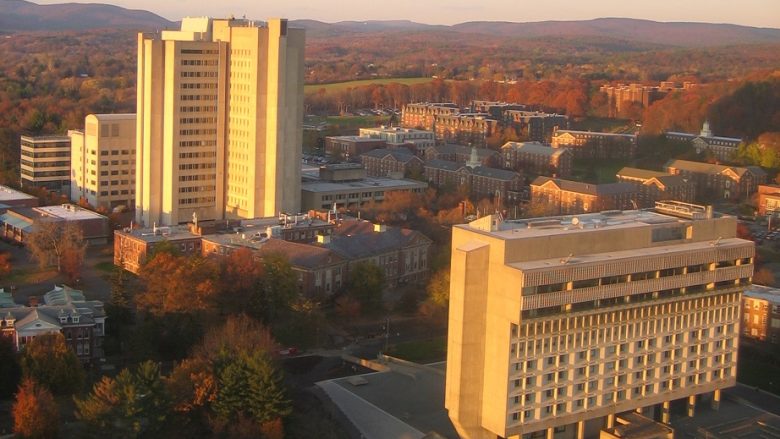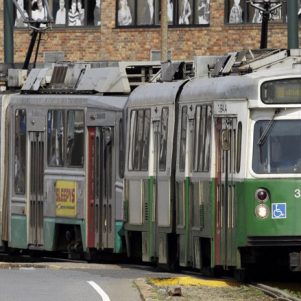Cost of attending UMass expected to rise
By NBP Staff | June 30, 2016, 17:36 EDT
 The University of Massachusetts Amherst campus as seen from the high-rise library. (Photo courtesy of Wikipedia.org)
The University of Massachusetts Amherst campus as seen from the high-rise library. (Photo courtesy of Wikipedia.org) The meager 1 percent budget increase for the University of Massachusetts approved by the state legislature on Thursday foreshadows a coming debate over tuition and fee increases, which are set to be voted on by the university’s board of trustees on July 14.
[“We] appreciate the fact that the Legislature was forced to make difficult decisions,” UMass spokesman Robert Connolly told the Boston Globe, but “the challenge now will be to find ways to adjust to the appropriation.”
Under the current budget, the university system (which consists of campuses in Amherst, Boston, Dartmouth, and Lowell, as well as the medical school in Worcester) can now expect around $508 million from the state.
UMass had requested state funding of $564.9 million for 2017. According to figures provided by the university, the final 2016 allocation totaled $511.7 million.
The state Senate budget had allocated $521.3 million for fiscal year 2017, but Gov. Charlie Baker’s office recommended only $508.3 million, and the House budget mirrored the governor’s recommendation.
After two years of tuition and fee freezes, UMass trustees approved a 5 percent hike in June 2015. During the 2015/16 academic school year, tuition and fees at UMass Amherst added up to $14,171 for Massachusetts residents and $30,504 for non-residents according to the university. At UMass Boston tuition and fees cost $14,988 for in-state students and $32,226 for out-of-state students, while at UMass Lowell, in-state totals were $13,427 and out-of-state were $29,125. UMass Dartmouth charged residents $12,588 and out-of-state students $26,173.
In May, UMass President Marty Meehan predicted a “reasonable” rate increase for the 2016/17 school year. But now that increase may be less reasonable than he anticipated.
UMass officials told the Globe that the university will now seek to undertake “efficiency and effectiveness” measures in an attempt to keep the state’s public university affordable without sacrificing academic quality. The question, according to the Globe, is not whether tuition and fees will rise, but by how much.
State House News Service contributed to this report.










